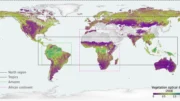The European Space Agency (ESA) is funding the project through its Terrae Novae Exploration Programme. The project HOBI-WAN (Hydrogen Oxidizing Bacteria In Weightlessness As a source of Nutrition) aims to test this innovative method for the first time in microgravity aboard the International Space Station (ISS) and further. OHB System AG was selected as the Prime Contractor for the project which will be implemented together with Solar Foods, a Finnish food technology company, to develop the space-compatible Solein gas fermentation technology.
Providing a sustainable and nutritious food supply which meets the energy requirements of the crew is one of the biggest challenges in human spaceflight exploration beyond Low Earth Orbit (LEO). In cases where pre-deployed food depots or continuous resupply missions from Earth are impractical, resource-heavy, or technically unfeasible, cost-effective alternatives are required. These can also contribute to more advanced life support and recycling systems for future LEO platforms.
The goal of the HOBI-WAN project is to validate the core processes and determine whether the production of the protein-rich powder can also function under microgravity conditions. Solar Foods’ bioprocess technology must be translated into a compact, autonomous system that can operate reliably in space. For example, special cartridges must inject gases without any fluid escaping – a critical aspect, especially given the explosive potential of hydrogen and oxygen mixtures. The experiment box will contain three separate experiments, and astronauts will be required to extract samples during the mission.
The first eight-month phase of the HOBI-WAN project will focus on developing a ground-based science model of the Solein production technology, followed by a second phase dedicated to the manufacturing, testing, and launch of the actual flight equipment.
The technology demonstrator is based on the following principle: In a bioreactor, a nutrient solution containing a bacterial culture is fed with gaseous hydrogen, oxygen, and CO₂ which are being supplied from storage tanks. In the future, this process may be applied at higher scale, by using the hydrogen, oxygen, and CO₂ produced by the crew and the habitat life support system, with a higher efficiency in recycling the resources than the life support system currently used on the International Space Station. Unlike on Earth where a pinch of ammonia is used as the nitrogen source, in space, urea serves as the nitrogen source for protein synthesis. Solein – the name of a protein-rich powder that requires neither farmland nor sunlight – is grown from fermentation of the Xanthobacter. The experiment will be housed in a standard middeck locker which will include all components required for the bioreactor, such as an incubator, sensors, control units, and systems for sample extraction.
“This project aims at developing a key resource which will allow us to improve human spaceflight’s autonomy, resilience and also the well-being of our astronauts,” says Angelique Van Ombergen, ESA’s Chief exploration scientist. “For human beings to be able to implement long duration missions on the Moon, or even one day, to go to Mars, will require innovative and sustainable solutions to be able to survive with limited supplies. With this project, we the European Space Agency is developing a key capability for the future of space exploration.”
“Since the European Columbus module was commissioned, OHB has been developing, operating, and maintaining scientific payloads for the ISS for over two decades. Our deep understanding of the ISS environment, combined with our experience in life support systems and scientific experiment platforms, makes us the ideal partner to bring Solar Foods’ technology into orbit – and we are very much looking forward to this collaboration,” says Jürgen Kempf, HOBI-WAN Project Manager at OHB. But the mission goes far beyond testing a novel protein source, Kempf adds: “We are exploring how to sustainably support human life in space. The insights we gain here could also help address global challenges on Earth – such as resource scarcity and food security. We are proud to contribute our expertise to a project that connects space innovation with planetary sustainability.”
“We are truly happy that we get to collaborate with OHB. Their expertise of evaluation and certification especially with respect to mandatory safety requirements will help us design a system that is suitable for the space environment, provides the needed data and most importantly can be safely operated onboard a manned space station”, says Arttu Luukanen, Senior Vice President Space & Defence at Solar Foods.
More information on Terrae Novae exploration programme
The Terrae Novae exploration programme groups ESA’s exploration campaigns to low Earth orbit, the Moon, and Mars into a unified programme. The programme delivers the Explore2040 strategy based on a vision in which Europe will be at the forefront of a sustained, sustainable and responsible human and robotic space exploration by providing unique contributions and returning benefits to society. Space exploration is unquestionably an investment in future prosperity. It creates high quality jobs and produces immediate economic benefits. Exploration science and technology boosts innovation and makes industry more competitive.
Source: ESA









Be the first to comment on "Protein Out of Thin Air: ESA’s pilot project HOBI-WAN launched"